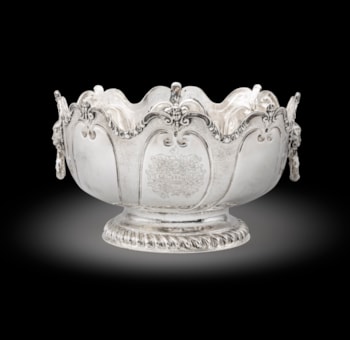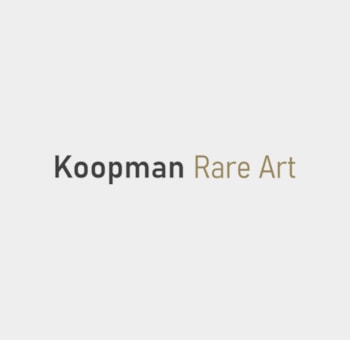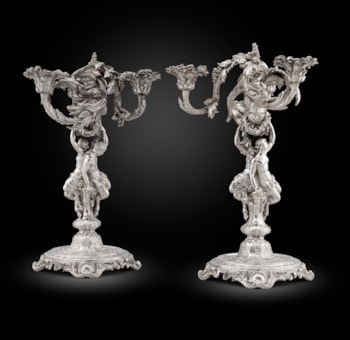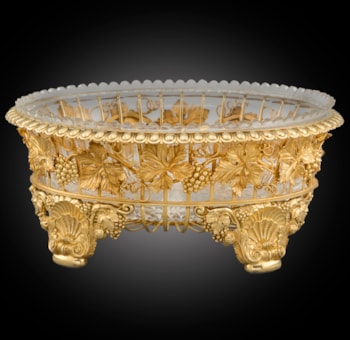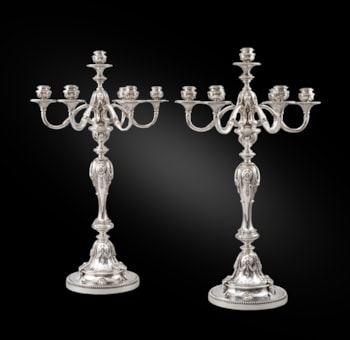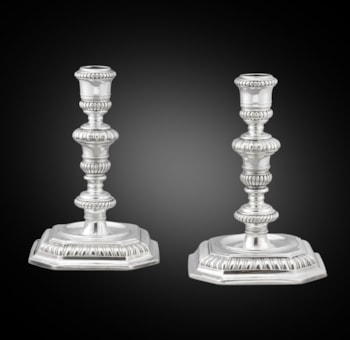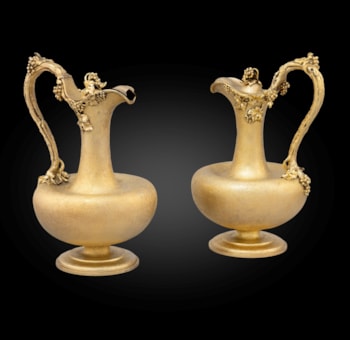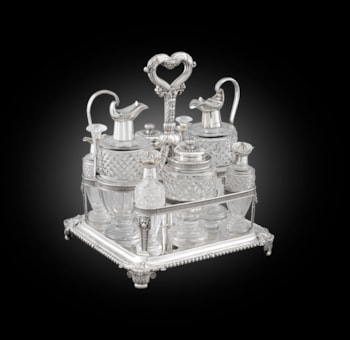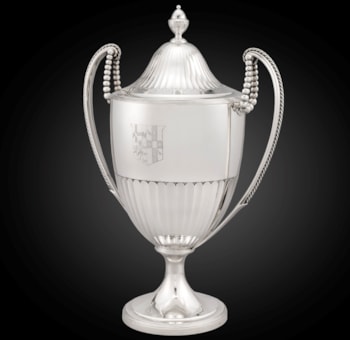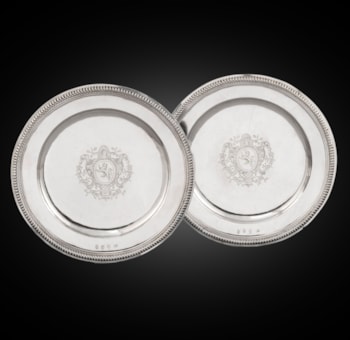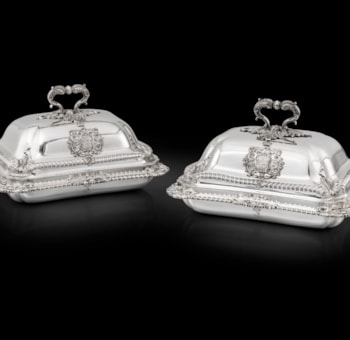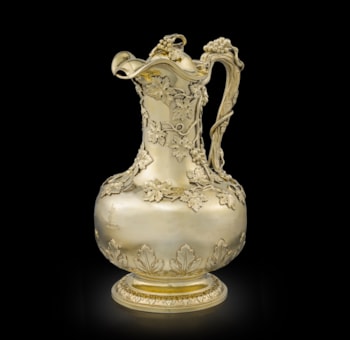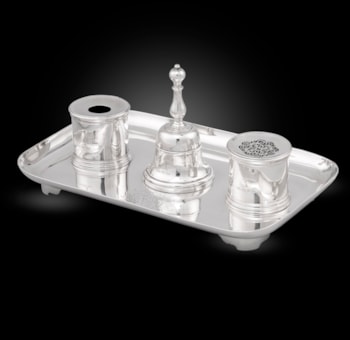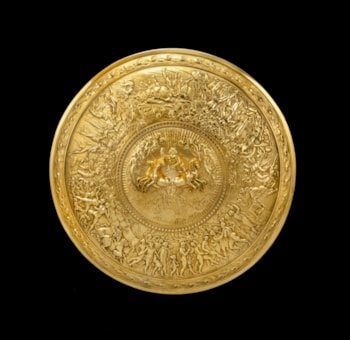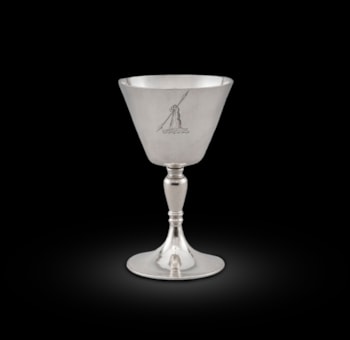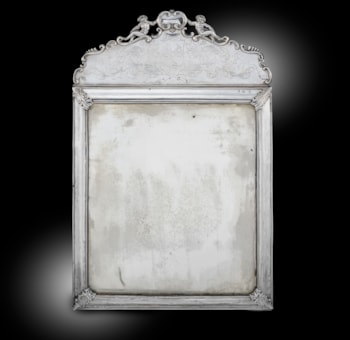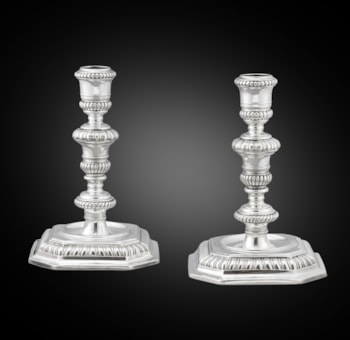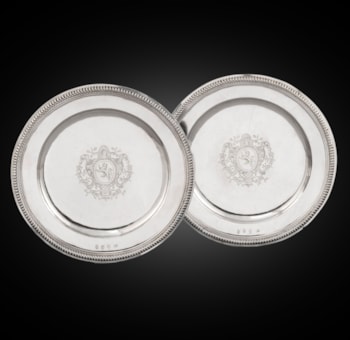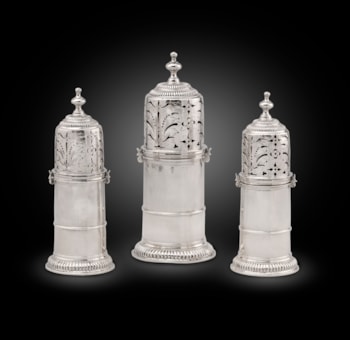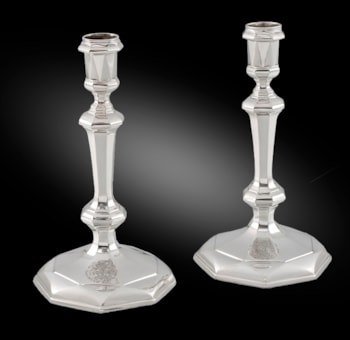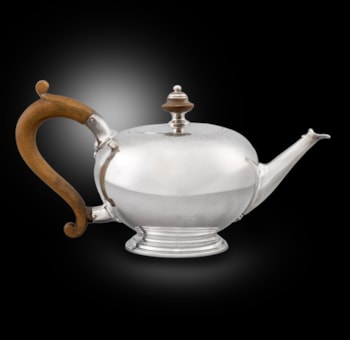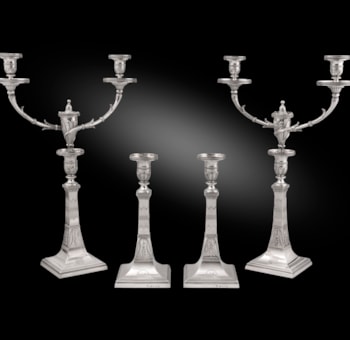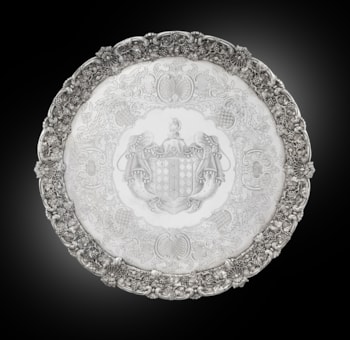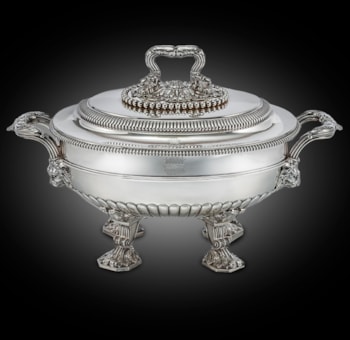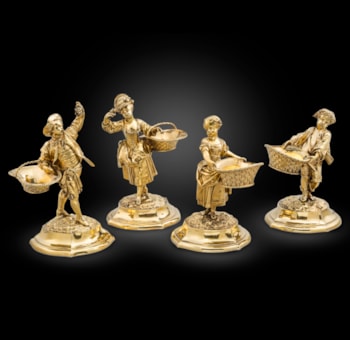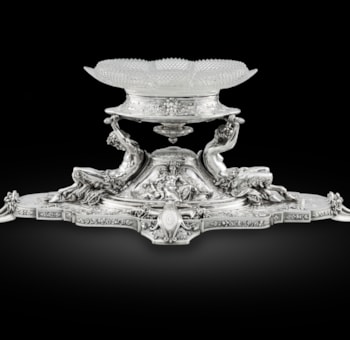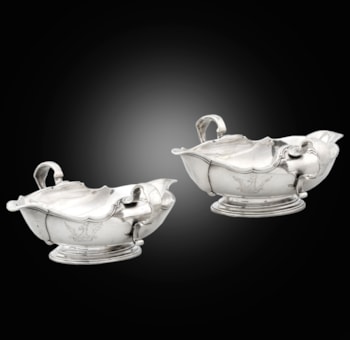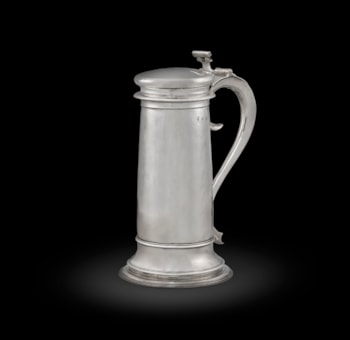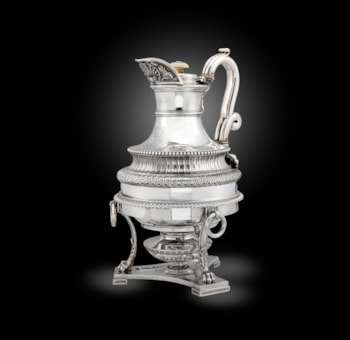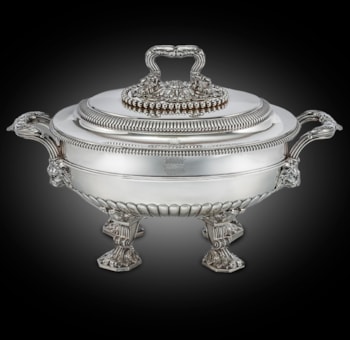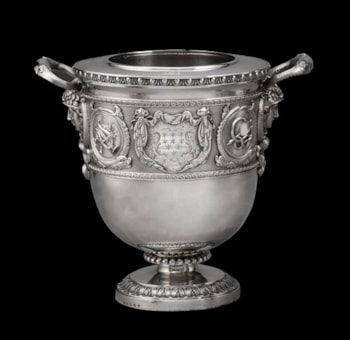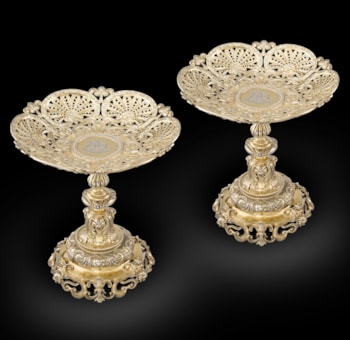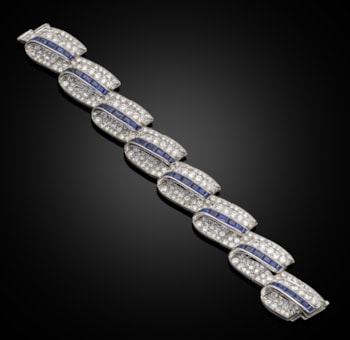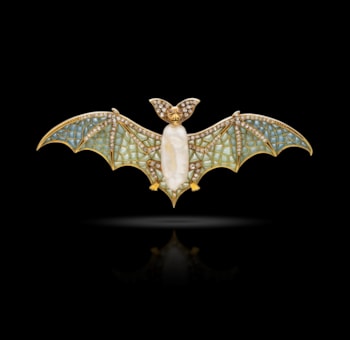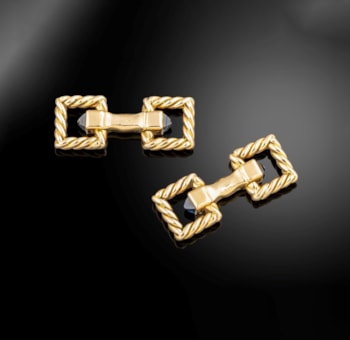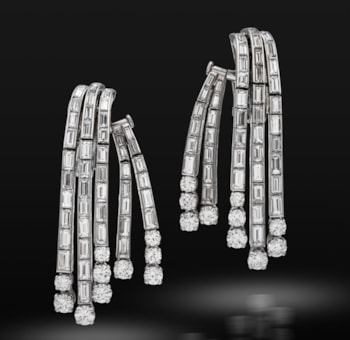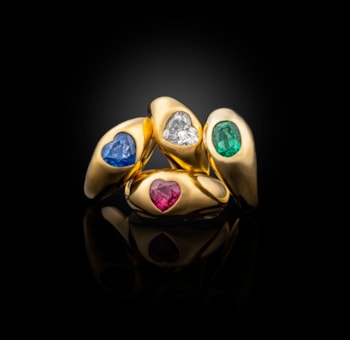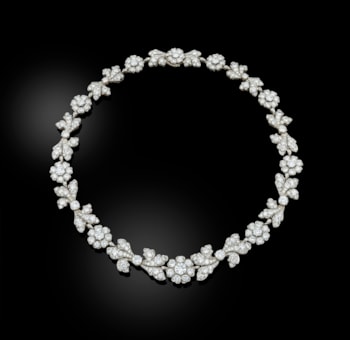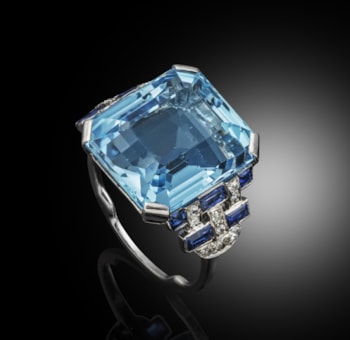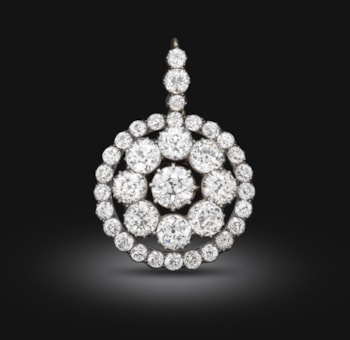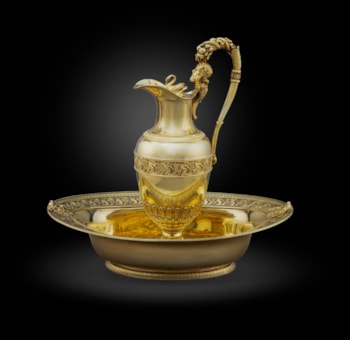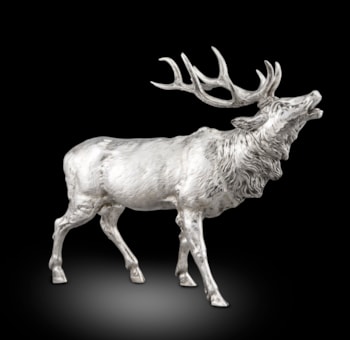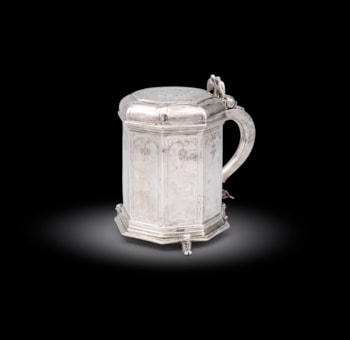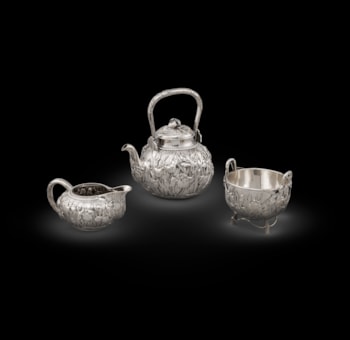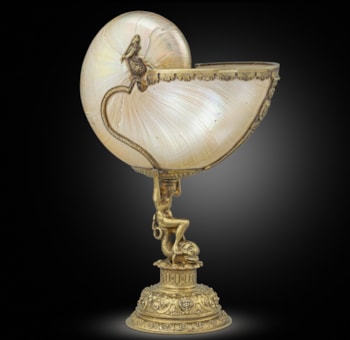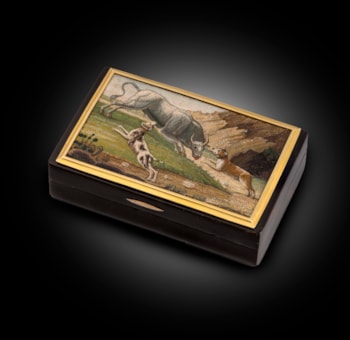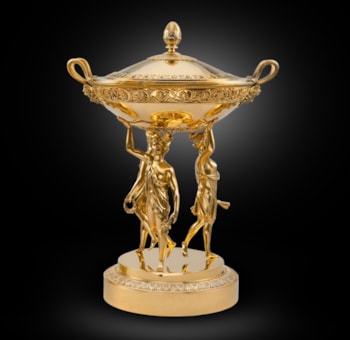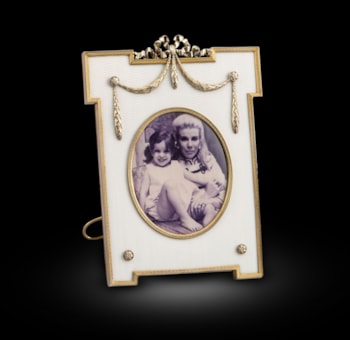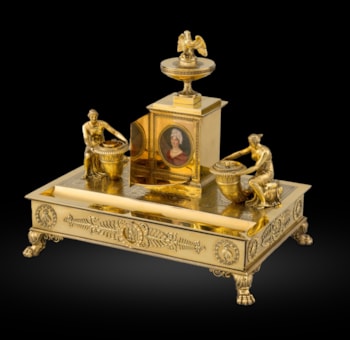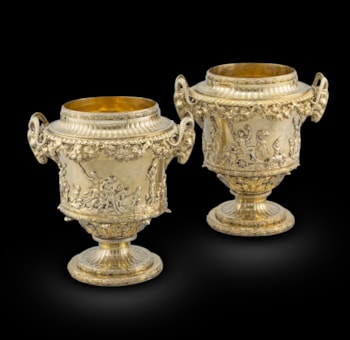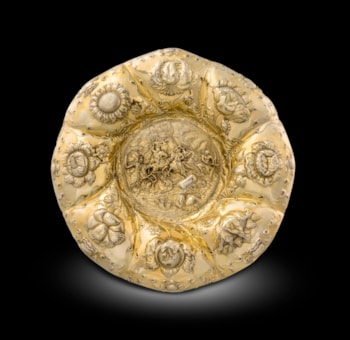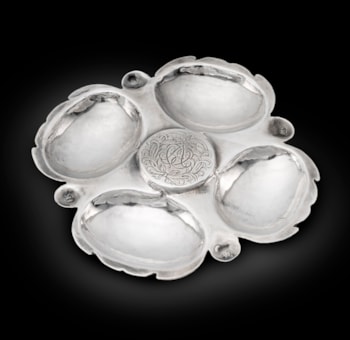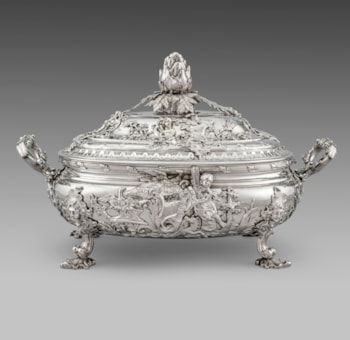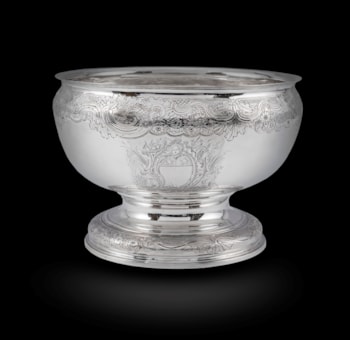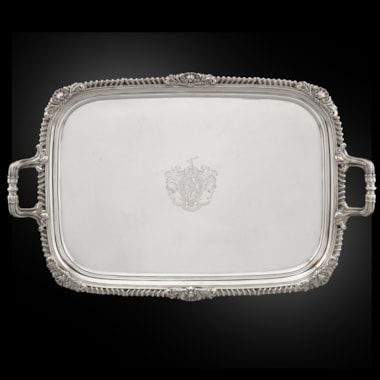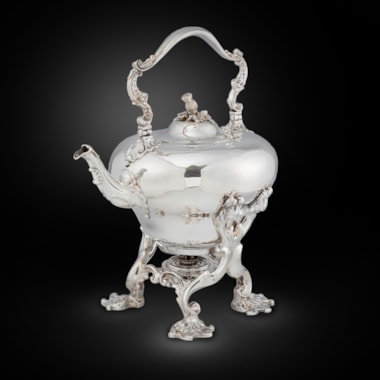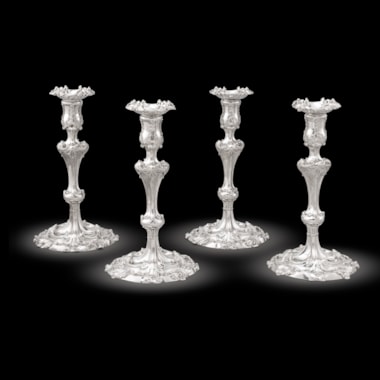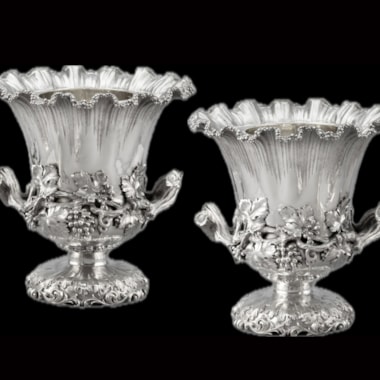With an extraordinarily elaborate border of harvesting bacchic putti, goats and vine branches with delicately chased leaves set within a scheme of both plain and chased rocaille scrolls. To the underside of each are four casters, an uncommon feature in wine coasters such as these, adding to their rarity.
To the base, engraved are the coat of arms of the Ferguson Clan of Scotland with the motto Dulcius Ex Asperis (Sweeter after difficulties). Additionally, within the border there is a cast and applied crest of three boars on an Azure blue shield with a buckle in the centre – one of the most familiar Ferguson Clan crests.
Mediaeval historians made reference to a Fergus, living in Ireland around 300 B.C., who was credited as the forefather to Scotland’s monarchy - it is considered by historians that almost all subsequent kings and queens of the Scots, including the present Queen Elizabeth II, are the same lineage as the first Fergusons. Members of the Ferguson Clan left Ireland around 500 A.D. destined for the shores of Scotland and established a colony in the Argyll region which they called Dalriada, named after the prominent Irish house, Dal Riata. The Ferguson clan is one of the oldest known Scottish clans and is the only one mentioned in Ireland’s oldest surviving document, the “Tract on the Men of Albyn” whereby specific reference is made to the Clan Ferguson.
While there have been many branches of the Ferguson clan since, from the early eighteenth century, the Chief of the Kilkerran Fergusons had been recognised by the Lord Lyon of Scotland as the Chief of all Fergusons. The House of Furgeson of Kilkerran in Ayrshire is descended from Fergus Son of Fergus who received his lands by charter from Robert I, King of Scotland.
This family has produced many notable statesmen, military leaders, lawyers, writers, and agricultural improvers. Sir Adam Fergusson, 3rd Baronet, died in 1813, and was succeeded by Sir James. Sir James upon his death in 1838 succeeded to Sir Charles, his son. The Right Honorable Sir James Fergusson of Kilkerran, 6th Baronet, G.C.S.I., K.C.M.G., etc. became chief in 1849. He perished in the Jamaica earthquake in 1907. His son, Sir Charles succeeded him as 7th Baronet of this line. The present Chief of the Name is Sir Charles Fergusson of Kilkerran, 9th Baronet, who currently resides in the Ferguson ancestral home near Maybole, Ayrshire.
These coasters were likely commissioned by Sir Charles Dalrymple Ferguson, 5th Baronet (1800-1849), to mark the occasion of his succession to the estates of his grandfather in the same year in which the coasters were made by Garrard.
Robert Garrard II was apprenticed in 1809 to his father, Robert Garrard I, a partner of Wakelin and Company, and gained his freedom of the Grocers' Company by patrimony in 1816. After the death of his father in 1818, Garrard entered his mark and, with his brothers James and Sebastian, took over the management of the workshop. During the early nineteenth century, the firm's business expanded at a tremendous rate, especially after the decline of Rundell, Bridge and Rundell in the 1820s. In 1830, the Garrard’s were appointed goldsmiths and jewellers to the king and in 1843 official crown jewellers. A large design studio was set up by them, which was modelled on that developed by Rundell, Bridge and Rundell and employed several well-known painters and sculptors, including Edmund Cotterill. During the mid-nineteenth century, Garrard's was one of the leading producers of elaborate presentation silver.
You May Also Like




